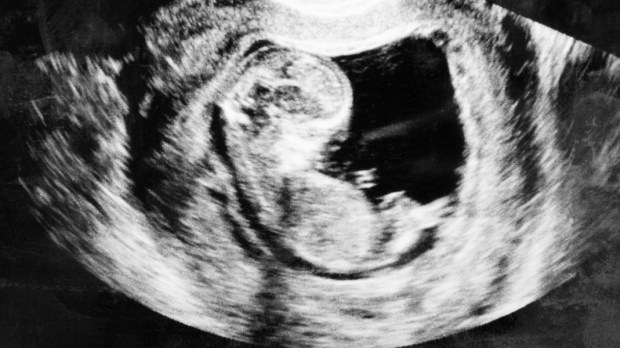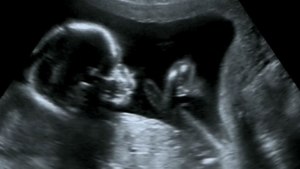Abortion is often put into terms of a right of a woman to do what she wants with her body. The unborn child is seen not as a separate human being, but part of the woman.
While it is true that the child relies upon the mother for his/her life, that child is a separate human being.
St. John Paul II quotes the Declaration on Procured Abortion in his encyclical Evangelium Vitae.
Some people try to justify abortion by claiming that the result of conception, at least up to a certain number of days, cannot yet be considered a personal human life. But in fact, “from the time that the ovum is fertilized, a life is begun which is neither that of the father nor the mother; it is rather the life of a new human being with his own growth. It would never be made human if it were not human already. This has always been clear, and … modern genetic science offers clear confirmation. It has demonstrated that from the first instant there is established the program of what this living being will be: a person, this individual person with his characteristic aspects already well determined. Right from fertilization the adventure of a human life begins, and each of its capacities requires time-a rather lengthy time-to find its place and to be in a position to act.”
Furthermore, St. John Paul II argues that while evidence for a soul is not scientifically verifiable, the science is clear that everything is there for the development of a human person.
Even if the presence of a spiritual soul cannot be ascertained by empirical data, the results themselves of scientific research on the human embryo provide “a valuable indication for discerning by the use of reason a personal presence at the moment of the first appearance of a human life: how could a human individual not be a human person?“
The Church believes that God creates a new human life at the moment of conception, and as a result it is no longer a “part” of the mother’s body, but an entirely separate human person.



